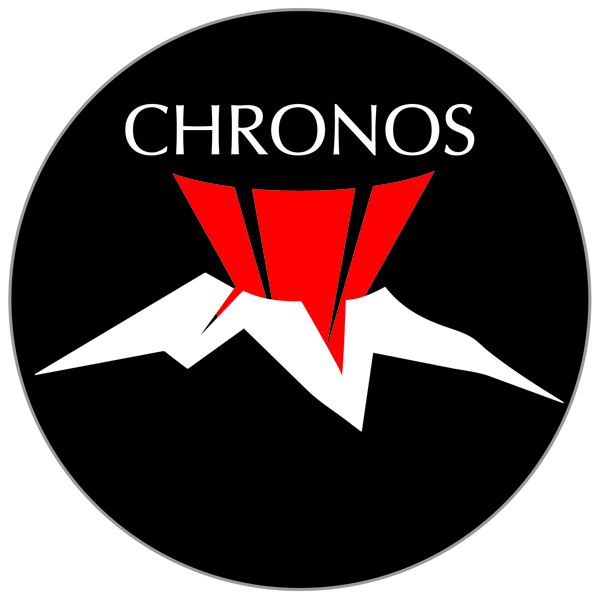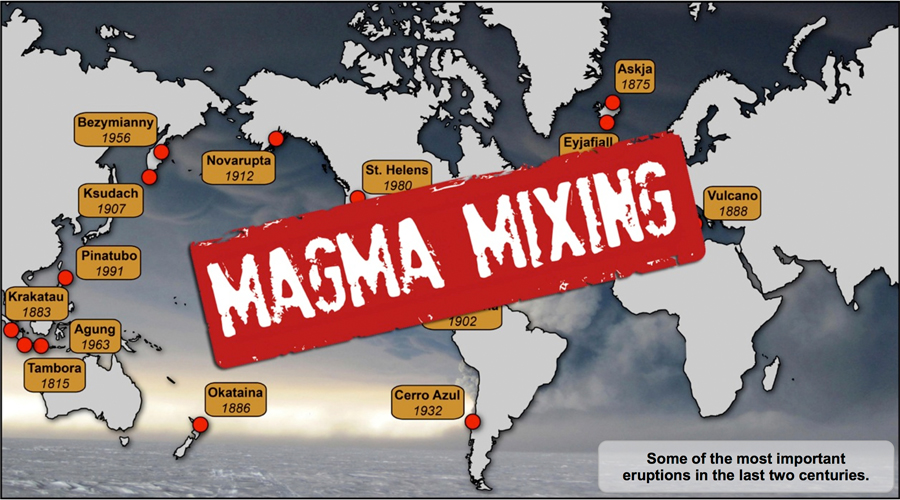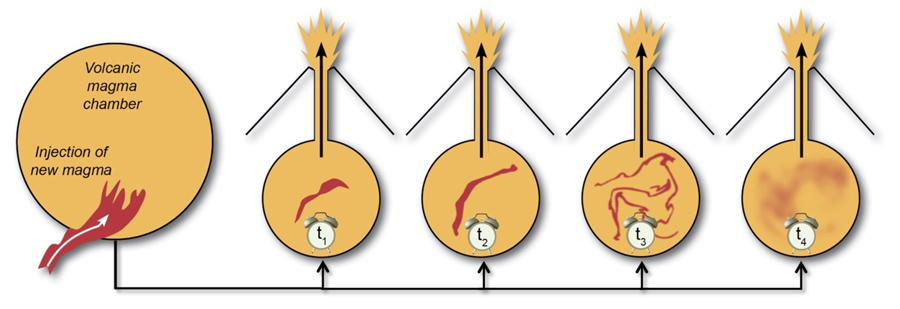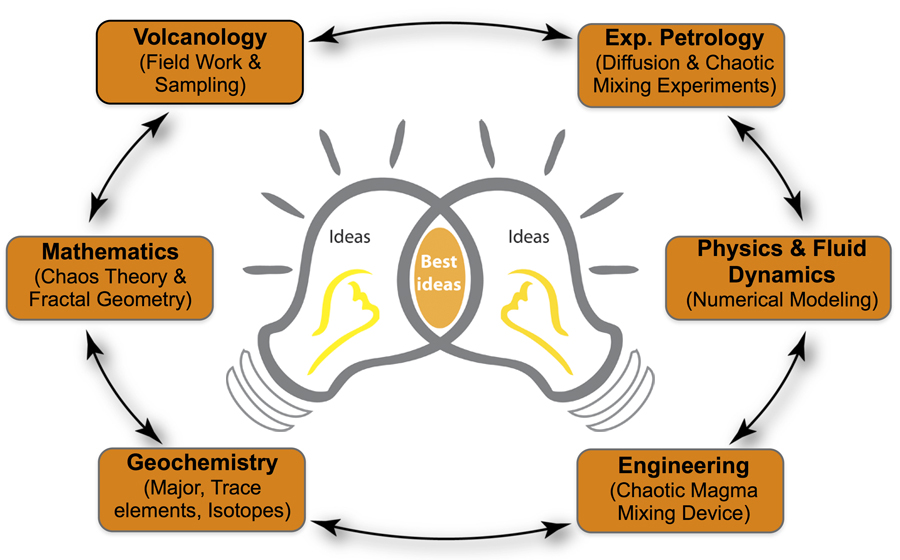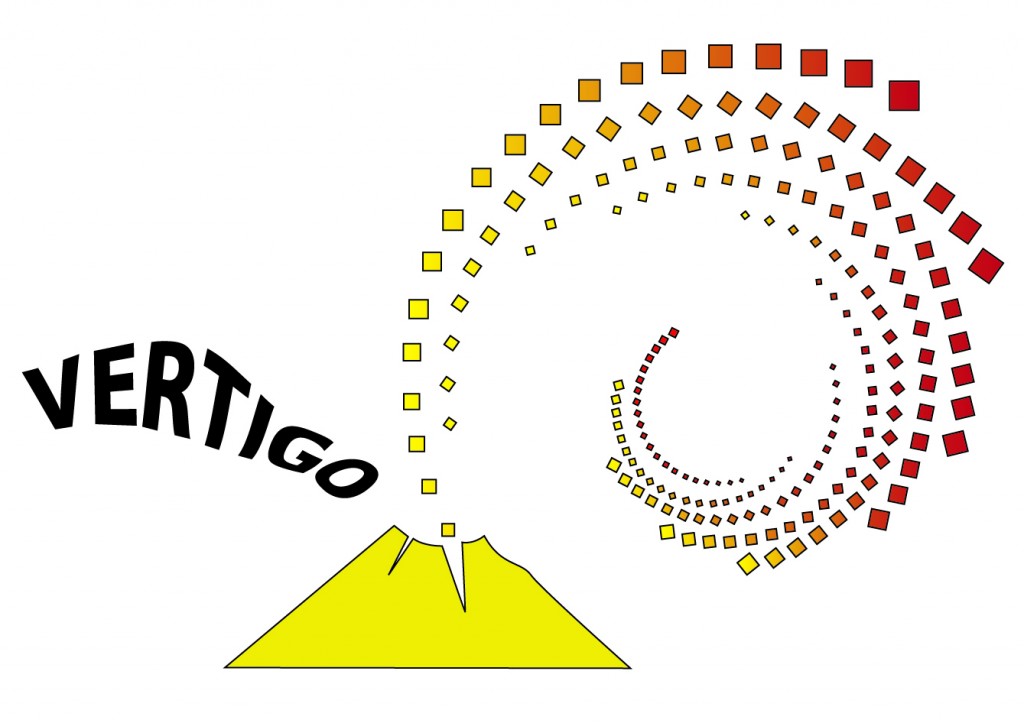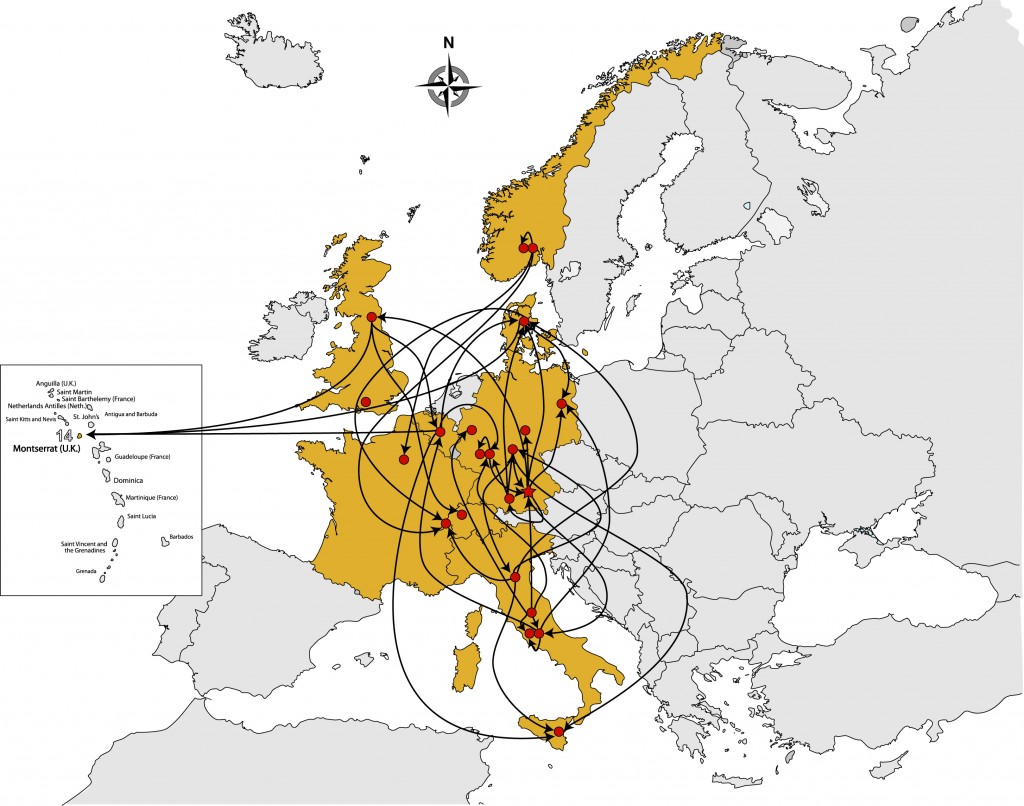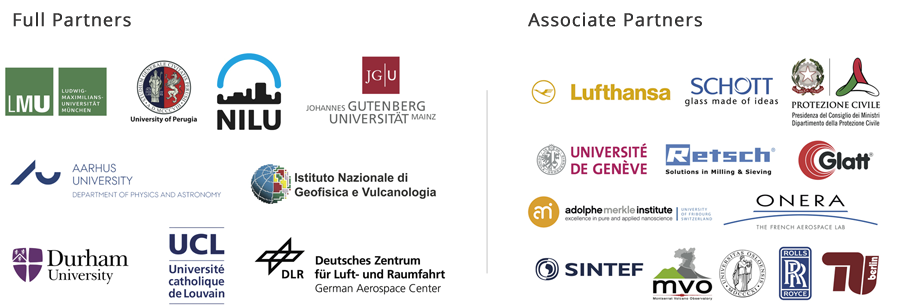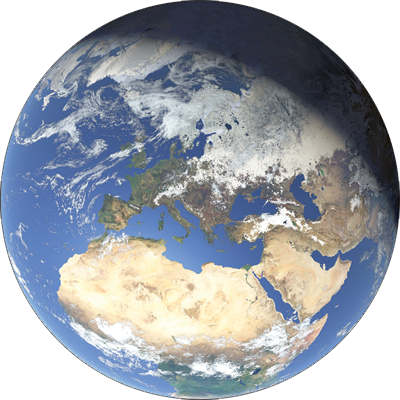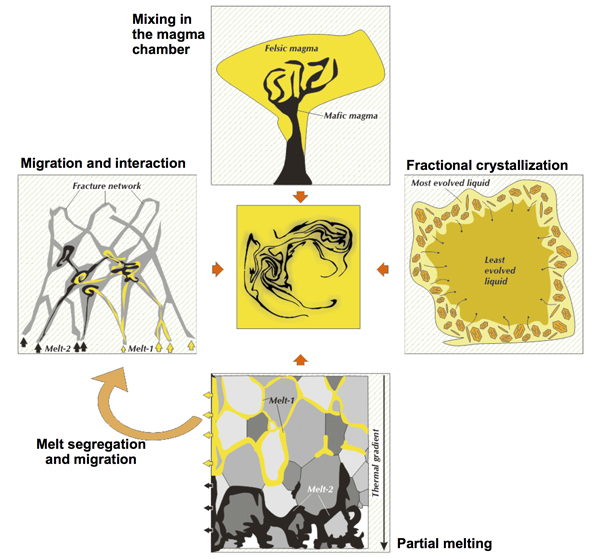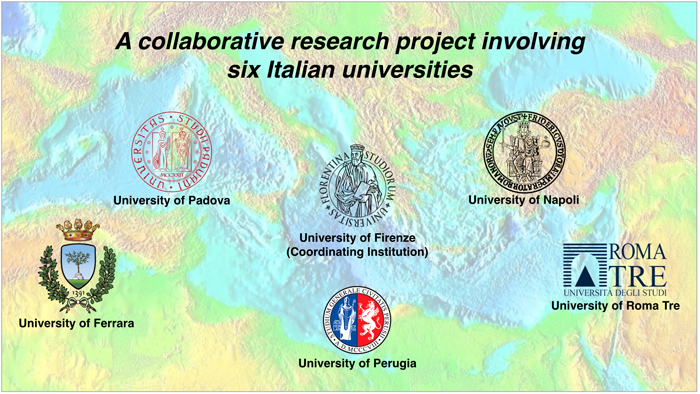CHRONOS Project

CHRONOS – A geochemical clock to measure timescales of volcanic eruptions
- Funding Scheme: ERC Consolidator Grant 2013
- Principal Investigator: Diego Perugini
Motivation
The most violent and catastrophic volcanic eruptions on Earth have been triggered by refilling of a sub-volcanic magma chamber by a new magma coming from depth. This process results in magma mixing and provokes a time-dependent diffusion of chemical elements. Understanding the time elapsed from mixing to eruption is fundamental to discerning pre-eruptive behaviour of volcanoes in order to mitigate the huge impact of volcanic eruptions on society and the environment.
The idea behind CHRONOS
A volcanic eruption can start at any time (t) after the injection of the new magma. Magma mixing is frozen in time by the eruption. The compositional heterogeneity produced by magma mixing in volcanic rocks can be used the same way a broken clock at a crime scene is used to determine the time of the incident. Mixing structures are geochemical clocks to measure timescales of volcanic eruptions.
Strategy and methodology
The CHRONOS project proposes a new method that will cut the Gordian knot of the presently intractable problem of volcanic eruption timing using a surgical approach integrating advanced conceptual models and techniques in Volcanology, Experimental Petrology, Geochemistry, Mathematics, Physics, Fluid-dynamics and Engineering. CHRONOS will open a new window on the physico-chemical processes occurring in the days preceding volcanic eruptions providing unprecedented information to build the first inventory of eruption timescales for planet Earth.
VERTIGO Project

VERTIGO – Volcanic ash: field, experimental and numerical investigation of processes during its lifecycle”
- Funding Scheme: International Training Network – Marie Curie Actions 2013
- Coordinator: Ulrich Kueppers (Ludwig Maximilian University of Munich, Germany)
- Scientist-in-charge @ unipg: Diego Perugini
- URL: Official VERTIGO web site
Objectives
The objective of VERTIGO is to improve career perspectives of young researchers in both public and private sectors, thus adding to their intersectoral employability. With training-through-research projects on open questions related to volcanic ash we will equip the next generation of European researchers with an innovative, multidisciplinary background for careers in academia, applied research, private sector and risk mitigation entities.
PRIN 2010-11 Project

Programmi di Ricerca Scientifica di Rilevante Interesse Nazionale (PRIN) 2010-11
- Funding Scheme: Programmi di Ricerca Scientifica di Rilevante Interesse Nazionale (PRIN) 2010-11
- Coordinator: Sandro Conticelli (University of Firenze, IT)
- Scientist-in-charge @ unipg: Diego Perugini
Objectives
Magma differentiation processes play a fundamental role in modulating the composition of primary melts and they can mask the geochemical characteristics inherited from the source region. This research project aims at evaluating the role played by differentiation processes in modulating the composition of primary melts and at defining the best methods to reconstruct their original composition. The reconstruction of the original characteristics of primary melts is an issue of fundamental geological importance because these characteristics are strictly linked with the geodynamics regime. This research project, therefore, will contribute to understand in greater detail the role played by magmatism during geodynamics processes and in the structuring of continental crust.
Partners
This is a collaborative research project funded by the Italian “Ministero dell’Istruzione, dell’Università e della Ricerca” involving six Italian universities: University of Florence (coordinating institution), University of Perugia, University of Ferrara, University of Padova, University of Roma tre, University of Napoli.

